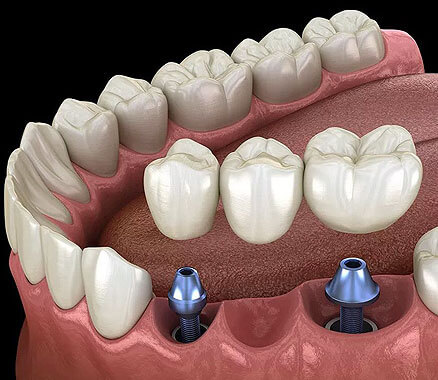
Losing a tooth can be more than just a cosmetic concern. Beneath the surface, your jawbone is also at risk. But thanks to advancements in dental implants, you no longer have to worry about long-term bone deterioration. If you’ve experienced tooth loss, dental implants are not only your ticket to restoring a complete smile—they also play a vital role in keeping your jawbone strong and healthy.
Let’s dive deeper into why your jawbone needs a solid foundation and how dental implants are the ultimate solution to preserving bone health.
How Tooth Loss Impacts Jawbone Health
Tooth loss doesn’t just affect your ability to chew or speak clearly; it also impacts your jawbone’s integrity.
- Bone resorption: When a tooth is lost, the bone that once supported it begins to break down or “resorb.” This is because the bone is no longer stimulated by the forces of chewing.
- Shrinking jawbone: Over time, bone resorption can lead to a shrinking or weakened jawbone, which may cause facial sagging and make future dental treatments more challenging.
- Shifting teeth: The neighboring teeth shift into the gap left by the missing tooth, leading to misalignment issues and further bone loss.
This process highlights the importance of quickly replacing a lost tooth to prevent jawbone degradation.
Why Dental Implants are the Ideal Solution for Bone Health
Dental implants are the only tooth replacement option that mimics the function of a natural tooth root. This unique feature is crucial for maintaining bone density and strength.
1. Implants Stimulate Bone Growth
Unlike dentures or bridges, dental implants fuse directly with your jawbone through osseointegration. This fusion stimulates bone growth and helps prevent further deterioration.
2. Durable and Long-lasting
A properly placed implant can last decades, providing a permanent solution to tooth loss. By offering consistent stimulation to the bone, dental implants help ensure that your jaw remains strong over the years.
3. Supporting Adjacent Teeth
With dental implants, there’s no need to grind down adjacent healthy teeth, as is the case with traditional bridges. Implants protect your natural teeth from unnecessary wear and help maintain a properly aligned bite.
The Consequences of Delaying Dental Implant Treatment
While it may be tempting to delay treatment after losing a tooth, the longer you wait, the more your jawbone deteriorates. This can make it difficult to place an implant later on without requiring additional procedures, such as a bone graft.
1. Bone Grafting
Bone grafting is often needed when the jawbone has significantly deteriorated. It involves transplanting bone material to rebuild the jawbone so it can support a dental implant.
- More costly: Bone grafting adds to the cost and complexity of dental implant treatment.
- Longer treatment time: Recovery time from a bone graft can take several months before implant placement can occur.
You can avoid these added challenges by addressing tooth loss with an implant sooner rather than later.
The Implant Procedure: Step-by-Step Guide
Understanding the procedure can help ease any concerns if you’re considering dental implants. Here’s what you can expect:
1. Initial Consultation
Your dentist will evaluate your oral health and determine whether you have enough bone density to support an implant. If needed, additional procedures, like a bone graft, may be recommended.
2. Implant Placement
During the procedure, the dentist places a titanium implant into the jawbone where the tooth root once was. Over several months, the implant fuses with the bone.
3. Abutment Placement
An abutment is attached once the implant has fully integrated with the bone. This is the connector that will hold the crown or artificial tooth.
4. Crown Placement
Finally, a custom-made crown is placed on the abutment, completing the restoration. The result is a natural-looking tooth replacement that functions like a real tooth.
Benefits of Dental Implants Beyond Bone Health
While maintaining bone health is a critical benefit of dental implants, they offer several other advantages that can enhance your overall quality of life:
- Improved appearance: Implants look and feel like natural teeth, making them a great option for restoring your smile.
- Better function: With implants, you can chew your favorite foods without worrying about slipping dentures.
- Speech improvement: Missing teeth or poorly fitted dentures can impact your speaking ability. Implants eliminate these issues, allowing you to talk naturally.
- Boosted self-esteem: Having a full set of teeth can restore confidence and help you feel more comfortable in social situations.
Maintaining Dental Implants for Long-term Success
Just like your natural teeth, dental implants require proper care to last for years. Fortunately, maintaining implants is easy:
- Brush and floss regularly: Clean around the implant like a natural tooth.
- Regular dental check-ups: During routine visits, your dentist will monitor the implant to ensure it is in good shape.
- Avoid smoking: Smoking can increase the risk of implant failure by impeding healing and bone integration.
Taking care of your dental implants ensures they remain a strong foundation for your smile and jawbone for years to come.
Losing a tooth doesn’t mean losing your jawbone’s integrity. With dental implants, you can replace your missing tooth and keep your jawbone strong and healthy for the long haul. If you’re ready to reclaim your smile and preserve your bone health, contact a skilled dentist who can guide you through the implant process. After all, the sooner you act, the better your jawbone will thank you!
